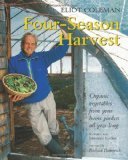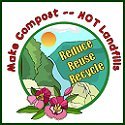You are here:
Home > Trees > Princess Kay Plum
Princess Kay Plum
Prunus nigra

Price Each
$49.95

Princess Kay Plum:
The Princess Kay Plum, Prunus nigra, is an ornamental plum. Princess Kay Plum is a double-flowered selection of Prunus nigra discovered in the wild in northern Minnesota. The tree form is oval with a somewhat open informal branching habit. It is a small tree that produces very pleasant and fragrant double white blooms in early May, before the leaves. These flowers then turn pinkish as they age. Princess Kay Plum has foliage that is medium green and sometimes develops a reddish-purple fall color in early autumn. Fruit set is sparse and is of poor quality. The trunk and branches are almost black in color. Adaptable to a range of soil conditions, Princess Kay Plum is not tolerant of poorly drained soils or extremely droughty soils. Requiring full sun for good performance, this tree should be grown for a wonderful landscape effect.

FREE Garden Journal!!
Join "Garden Notes" and plan for Harvest Success as you track and record your gardening progress.
Your Free Personal Garden Journal has pages for jotting down notes on the seeds you start,
your new plantings, when you fertilized, and even a graph to plot a new garden.
What's New?
"Organic food has a higher nutritional value than ordinary produce, a study by Newcastle University has found."
"A team grew fruit, vegetables and reared cattle on adjacent organic and non-organic sites across Europe.
They found up to 40% more antioxidants could be found in organic fruit and vegetables than in non-organic.
The team said the findings call into question the current stance of the Food Standards Agency (FSA), which is neither for nor against organic food."
Organic Food Gardening Guide
Free
Gardening Catalog
Click Here
Book of the Month

A book full of valuable information on how to harvest fresh vegetables and salad
ingredients literally year-round--yet without an expensive greenhouse or indoor light garden set-up.
Coleman combines succession planting (small sowings three or more times, rather than
one big endeavor) with cold-frame growing in the winter months. He includes how-tos for building simple cold-frames.
Read More...
Garden Tip of the Day










